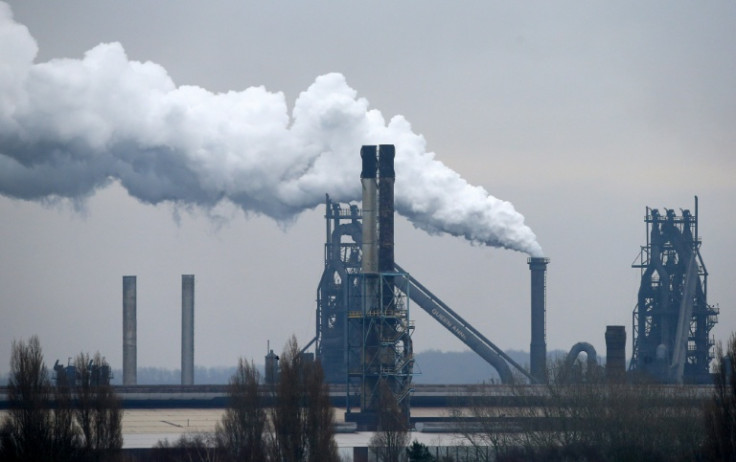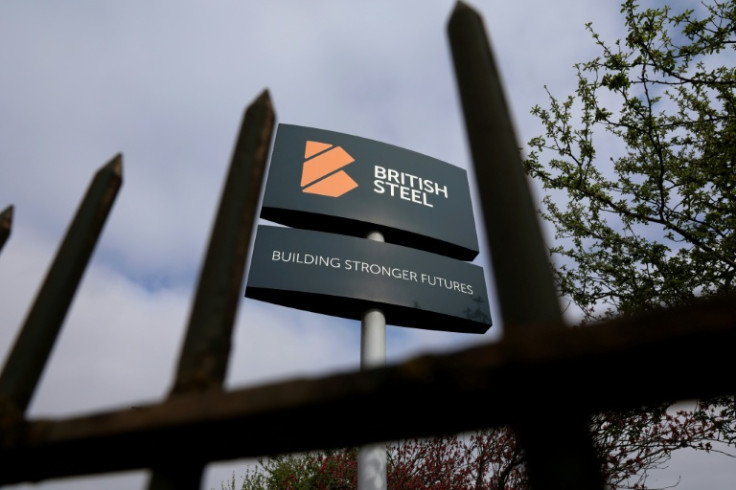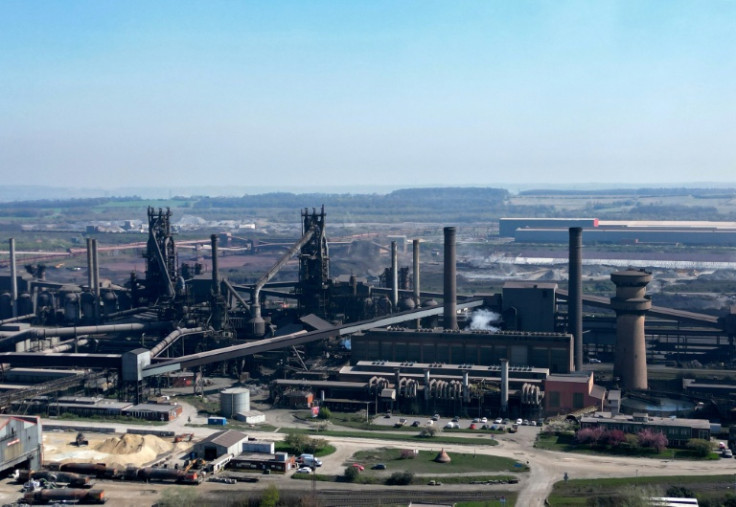UK Parliament Recalled To 'Protect' British Steel's Future

The UK government has recalled parliament this weekend aiming to pass emergency legislation to "take control" of a struggling British Steel plant, Prime Minister Keir Starmer said Friday.
MPs will join a rare Saturday sitting to discuss the draft bill which would allow the Labour administration to take measures to prevent the plant's imminent closure with thousands of jobs at stake.
The government has been scrambling to prevent the closure of Britain's last remaining blast furnaces at Scunthorpe after British Steel's Chinese owner Jingye announced plans to scale back operations last month.
"The future of British Steel hangs in the balance," said Starmer on Friday.
Starmer said parliament "will pass emergency legislation in one day to give the business secretary the powers to do everything possible to stop the closure of these blast furnaces".
The BBC reported that parliament could then be asked to nationalise the company at a later session.
Starmer has said that all options are open to secure the future of the plant but has not specifically mentioned nationalisation.
"It enables the UK government to preserve capability and ensure public safety," a Downing Street spokesperson said.
MPs left for their Easter holidays on Tuesday and were not due to return to parliament until April 22.
The lower house of parliament was last recalled from recess in August 2021 for a debate about the situation in Afghanistan as the western-backed government fell to the Taliban.
In an indication of how seriously the government is taking the plight of British Steel, the last Saturday sitting of parliament was in October 2019 to vote on prime minister Boris Johnson's Brexit deal.
Before that MPs last sat on a Saturday recall at the start of the Falklands War between Britain and Argentina in 1982.
"We have been negotiating with British Steel's owners in good faith ever since coming to office," the Downing Street spokesperson added.
"We have always been clear there is a bright future for steel in the UK. All options remain on the table."
Starmer's move was welcomed by the unions.
"I am pleased that the government has listened to representations by Unite and other steel unions," said Sharon Graham, secretary general of Unite, one of UK's largest trade unions.
"It is absolutely the right thing to do to begin the process of nationalisation."
British Steel said US President Donald Trump's tariffs on the sector were partly to blame for the plant's difficulties.
However, it is fierce competition from cheaper Asian steel that has been blamed for heaping pressure on Europe's beleaguered steel industry in recent years.
Any decision to close it could cost up to 2,700 jobs at its main Scunthorpe site.
The Financial Times on Wednesday reported that finance minister Rachel Reeves "is open to the option of bringing British steel into public ownership", citing people close to recent conversations held between the minister and union bosses.
British Steel, which employs about 3,500 people in total, has so far failed to reach agreement with the UK government on a financial package that would help it transition to "greener" steel making.
Starmer recently announced that the government was stumping up some GBP2.5 billion ($3.2 billion) to help support the steel sector in Britain, home also to operations owned by Indian group Tata.
Saturday's sitting will begin at 11:00 am (1000 GMT).
"Recalling parliament is the right decision to ensure that British Steel, the wider steel sector and thousands of steel workers and their families are given the certainty they deserve in trying times," said UK Steel director-general Gareth Stace.
Greenpeace's Lily-Rose Ellis said MPs "must vote in favour of nationalisation and seize the opportunity to revitalise the industry, making Britain a world leader in green steel manufacturing".
British Steel was privatised in the 1980s by Margaret Thatcher's Conservative government and later taken over by India's Tata Steel in 2007.
Scunthorpe in northern England is British Steel's primary site, and Britain's last virgin steel plant -- which produces steel from raw rather than recycled materials -- after Tata's Port Talbot shuttered its blast furnace last year.


© Copyright AFP 2025. All rights reserved.




















